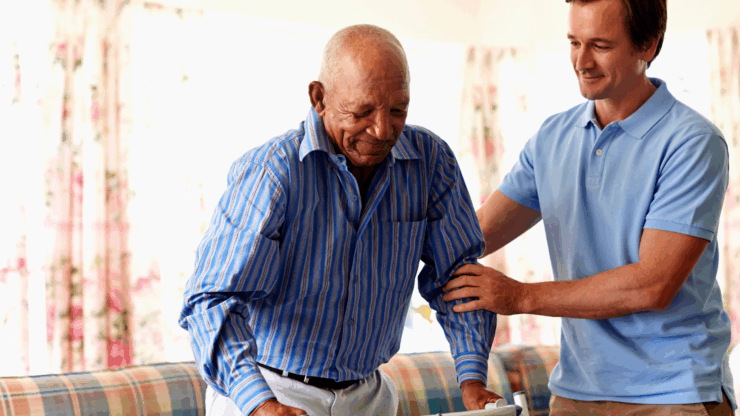
How to Communicate with Your Loved One’s Caregiver
When you have someone providing care for yourself or a loved one, it can bring about a wide range of emotions. A successful caregiver, whether it’s a professional or a family member, is concerned with giving their loved ones educated, nurturing, and dedicated care so they may become independent as they can age gracefully.One of the most important skills that a caregiver can cultivate is listening well and, on several levels, effective communication is essential! Since the connection between a caregiver and your aging loved one is inherently vulnerable and personal, sharing information from the get-go can really benefit the relationship.
Ultimately, keeping an open and honest line of communication will benefit everyone. In this article, we will discuss the basis of communicating with your loved one’s caregiver.
Basis of Communication
Be Open
You want the caregiver to feel comfortable communicating with you and your family. It’s best to provide multiple ways your caregiver can get in touch with you to encourage the caregiver to communicate back.
Start by being communicative yourself. It’s important to be upfront and honest about your hopes and wishes for your loved one’s care. Be honest: if you’re uncomfortable with something your in-home caregiver is doing, let them know.
Be sure to always, to always let your caregiver know if you have anything positive to say about their work. A little appreciation goes a long way.
Onboarding Family Members
Before hiring a new caregiver, it is important that your family members are on board and agree. It’s best to have a family meeting to discuss considerations surrounding the care that is needed.
Once you make sure everyone is on the same page, this can help make the process easier for hiring and onboarding a new caregiver. You should continue to have conversations about how things are going with the new caregiver to continue to build trust in the process.
You will also need to figure out who the point of contact will be for the caregiver and who will help supervise the caregiver. At LifeWorx, our care coordinators manage and help families in the search process of finding a caregiver that best matches our client’s needs in their home and for their family.
Onboarding The Caregiver
Before the caregiver arrives, set aside time with your loved one to plan the caregiver’s arrival. Make a list of all the doctors your parent or family member might need to see. Write down upcoming appointments on the calendar and encourage the caregiver to use them too. Make copies of all important papers and show your caregiver where they are.
Additionally, make a copy of your loved one’s daily medication list to share with the caregiver, and also don’t forget to share your loved one’s favorite activities, foods, and TV shows.
When a new caregiver arrives at your loved one’s home, help him or her get started by suggesting that your loved one take the caregiver through the home. By preparing for the caregiver’s arrival, you’ll make them feel appreciated and expected, at the same time you’ll ensure the caregiver is prepared to take care of your loved ones as best as possible and provide peace of mind.
Good communication allows for Good Care
Good communication is the foundation of good care. You, your family, and the caregiver should have open and ongoing communication. A regular meeting time should be scheduled so that you can be proactive about feedback and needs.
Give the caregiver space
Be respectful to the caregiver. Remember that he or she has a life and responsibilities out of their work with your loved one. If you’d like to talk to the caregiver, ask them for a moment for their time or ask when a convenient time would be. The choice of words can have a positive impact in that you respect their work and realize their time is valuable.
The more respectful you are of your loved one’s caregiver, the more likely they will reciprocate and treat you and your loved one with respect in turn.
The role of the caregiver has many facets. An effective caregiver, whether it’s a professional or a family member, is interested in providing educated, nurturing, and loving care to allow clients or loved ones to become as sufficient as they can be. Communication at all levels is essential for the continued physical and emotional well-being of a loved one.
Find your peace-of-mind.
Explore LifeWorx’ in-home elder care services.

















